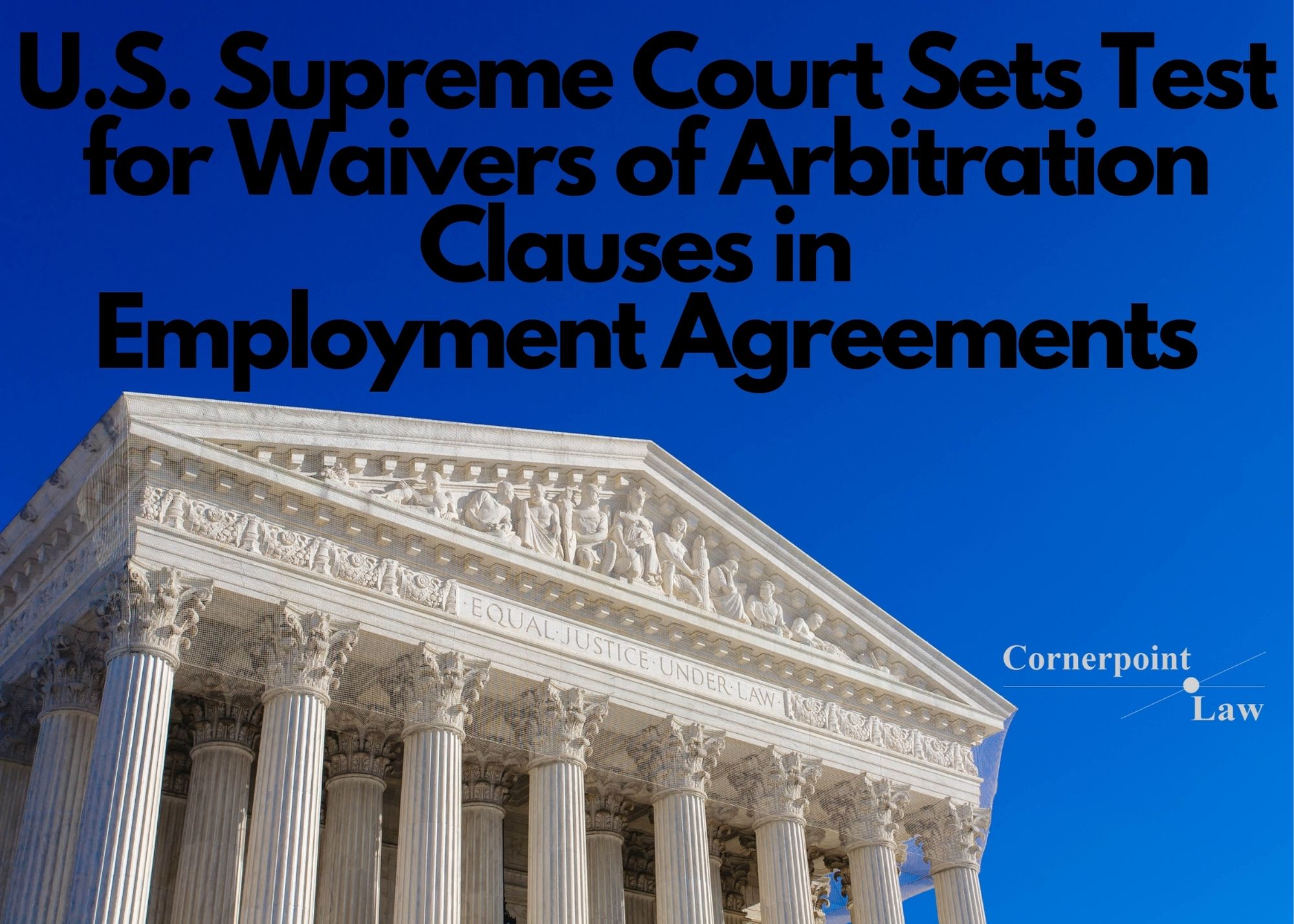Arbitration Agreements: Don’t Put the Cart Before the Horse
September 30, 2020
Unauthorized use and/or duplication of blogposts without express and written permission is strictly prohibited. Excerpts and links may be used, provided that full and clear credit is given, and with appropriate and specific direction to the original content.
The author of this post can be reached by phone at 206-693-2718 or by email.
We Don’t Know What We Don’t Know
By Stacia Hofmann
Cornerpoint Case Pops are dedicated to summarizing relevant, new cases — and their business and risk management lessons — in bite-size posts.
What does it mean to legally reach an agreement to arbitrate in the employer/employee context, where new employees might be signing and reviewing many pages of documents, like company policies and employment agreements?
In August 2020, the Washington Supreme Court decided a case that, quite convincingly, told us what new employee processes are not effective in creating a binding, legal contract to arbitrate. The gist? Employees don’t know what they don’t know, so it’s the employer’s responsibility to make sure the employee is timely provided with all necessary documentation and the opportunity to review arbitration agreements.The Case: Burnett v. Pagliacci Pizza, Inc., Washington Supreme Court (No. 97429-2 August 20, 2020)
Case Background

The plaintiff was hired by a pizza company. At orientation, which was about 40-60 minutes long, he was given multiple forms and documents, including an employment agreement and an employee handbook.
⇒The employment agreement was a single page, and the employee was told to sign it during the orientation in order to start work. The employment agreement stated, in part, that the employee “would learn and comply with the rules and policies” in the employee handbook. ⇒The employee handbook was a separate document and 23 pages long. The employee was given the handbook after he signed the employment agreement. He was told to read the handbook at home on his own time. The employee handbook had a mandatory internal grievance policy. If the employee complied with the grievance policy, then the employee had to bring their grievance in arbitration (according to page 18 of the handbook) instead of in court. (Watch my YouTube video to learn about the difference between arbitration and court.) If the employee did not comply with the grievance policy, the employee was out of luck. The employee filed a potential class action lawsuit for wage and hour violations. The pizza company asked the court to move the case to private arbitration instead, believing that private arbitration would be a better venue for the pizza company. The pizza company argued that the arbitration policy on page 18 of the employee handbook applied. The employee argued that there was no enforceable agreement to arbitrate, and the matter should stay in public court.Arbitration Requires an Agreement to Arbitrate
The Washington Supreme Court looked to see if there was an agreement between the employee and the pizza company to arbitrate disputes. After all, contracts require that parties agree to the same terms. If there is no agreement to arbitrate, then arbitration cannot be required.
The justices on the court concluded, unanimously and definitively, that there was no agreement to arbitrate. While there was an arbitration policy in the employee handbook, the employee had no knowledge of the arbitration policy when he signed the employment agreement. He had no opportunity to review the employee handbook before signing the employment agreement, and was instead told to read it on his own time. The case was to stay in court.
The Arbitration Policy Was Procedurally Unconscionable
The court did not stop there, and instead explained further that even if there had been an agreement to arbitrate, the law would invalidate it. For many of the same reasons that there was no agreement in the first place, the “procedure” surrounding the the alleged agreement was unconscionable. The employment agreement did not mention that the handbook even had an arbitration policy, and the handbook was not received and reviewed before the employment agreement was signed. In other words, “how” the pizza company presented the arbitration policy was so unfair that it could not be enforceable.
The Arbitration Policy Was Substantively Unconscionable
 The court explained another reason that there would be no arbitration of the employment dispute: the arbitration policy was “substantively” unfair. That’s because the handbook required that the employee first comply with the internal grievance policy. If the employee did not do so, then the employee could not bring a claim in arbitration (or in court). Generally speaking, a Washington employer cannot deny an employee their right to bring a claim by requiring compliance with the company’s own internal process. The internal grievance policy was therefore overly harsh. And because the arbitration policy was tied to the unfair internal grievance policy instead of being separate and severable, both policies had to be “thrown out together.”
The court explained another reason that there would be no arbitration of the employment dispute: the arbitration policy was “substantively” unfair. That’s because the handbook required that the employee first comply with the internal grievance policy. If the employee did not do so, then the employee could not bring a claim in arbitration (or in court). Generally speaking, a Washington employer cannot deny an employee their right to bring a claim by requiring compliance with the company’s own internal process. The internal grievance policy was therefore overly harsh. And because the arbitration policy was tied to the unfair internal grievance policy instead of being separate and severable, both policies had to be “thrown out together.”
Key Takeaways
Arbitration has been a favorite subject of this blog many times. Procedural and substantive unconscionability were covered in this blogpost. See also here, here, and here. This attorney believes that arbitration has its pros and cons, and whether to include an arbitration policy should be made on a case by case basis.
Nonetheless, if any party – including an employer – wants an enforceable arbitration clause, it needs to make sure the other party agrees to it. As the Washington Supreme Court concluded, providing the arbitration provision language to the other party after an agreement has already been signed is not the way to do it.
Finally, an arbitration provision has to be fair. Things like making the arbitration provision conspicuous, giving the other party opportunity to review the language, and making sure that the arbitration policy does not squash substantive legal claims are all important rules to follow.
Email or call me to see if Cornerpoint can help with your contract or employment law questions.This blog is for informational purposes only and is not guaranteed to be correct, complete, or current. The statements on this blog are not intended to be legal advice, should not be relied upon as legal advice, and do not create an attorney-client relationship. If you have a legal question, have filed or are considering filing a lawsuit, have been sued, or have been charged with a crime, you should consult an attorney. Furthermore, statements within original blogpost articles constitute Stacia Hofmann’s opinion, and should not be construed as the opinion of any other person. Judges and other attorneys may disagree with her opinion, and laws change frequently. Neither Stacia Hofmann nor Cornerpoint Law is responsible for the content of any comments posted by visitors. Responsibility for the content of comments belongs to the commenter alone.




